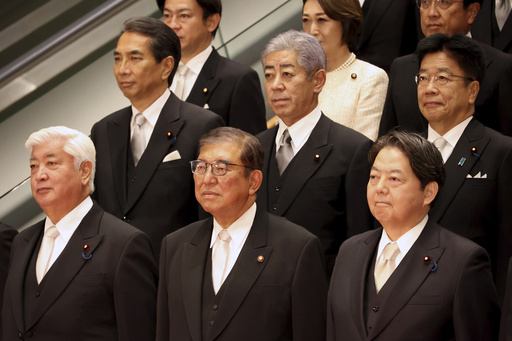
TOKYO — The Japanese economy recorded a modest annual growth rate of 0.9% for the July to September period, buoyed by resilient consumer spending, according to recent government statistics released on Friday.
The nation, ranking as the fourth largest economy globally, experienced a growth rate of 0.2% in the fiscal second quarter, marking two consecutive quarters of economic expansion following a 0.5% increase in the April to June quarter.
The seasonally adjusted gross domestic product (GDP) reflects the value generated by goods and services within a nation. The annual growth rate indicates the hypothetical growth or contraction of the economy if the quarterly growth rate persisted for an entire year.
Domestic consumption saw an annualized growth of 2.5%. Notably, private spending, which constitutes over half of Japan’s GDP, rose by 3.6% due to strong household consumption, as indicated by preliminary data from the Cabinet Office.
While recent statistics reveal improvements in employment and wages, spending has decreased compared to the previous quarter. This decline can be attributed partly to adverse weather conditions that disrupted consumer activity and temporarily halted some factory operations. However, recent tax cuts have contributed positively to spending levels.
Exports experienced a rise of 1.5%. The depreciating yen tends to benefit the export sector by making Japanese goods more affordable in international markets, although its effect was somewhat limited in this quarter. Earlier this year, the yen was trading around 160 to the dollar, but it has now appreciated to approximately 150 to the dollar.
Prior to these last two quarters of growth, Japan’s economy contracted by 0.6% in the January to March quarter after a slight growth of 0.1% in the final quarter of 2023. This highlights a recent trend where the economy has alternated between periods of contraction and sluggish expansion.
Looking ahead, Katsutoshi Inadome, a senior strategist at SuMi Trust, expressed optimism about the potential for steady growth in the Japanese economy, supported by improvements in global economies. He also pointed out that upcoming winter bonuses for many Japanese workers could further bolster domestic consumption.
However, challenges persist, particularly with political uncertainties as Prime Minister Shigeru Ishiba faces a runoff election this week against a reinvigorated opposition.
In contrast to other developed nations, like the U.S., which are dealing with rising inflation, Japan has long experienced deflationary pressures that highlight its vulnerable economic conditions. As of September, inflation was recorded at 2.5%.
Market analysts are keenly observing the Bank of Japan’s next moves regarding interest rates. The central bank has maintained zero or negative interest rates for an extended period to combat deflation, but it is now cautiously moving toward increasing rates.
